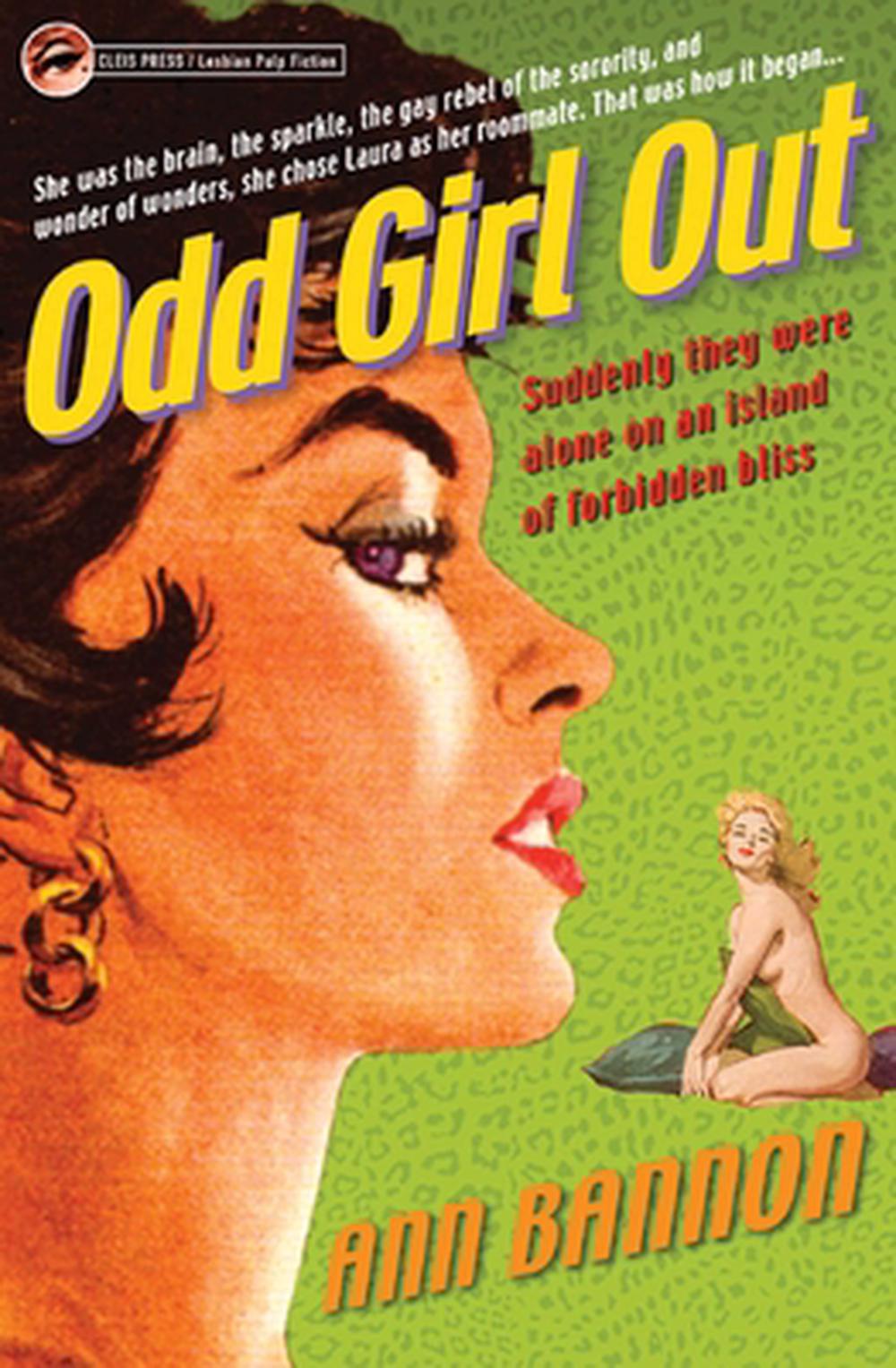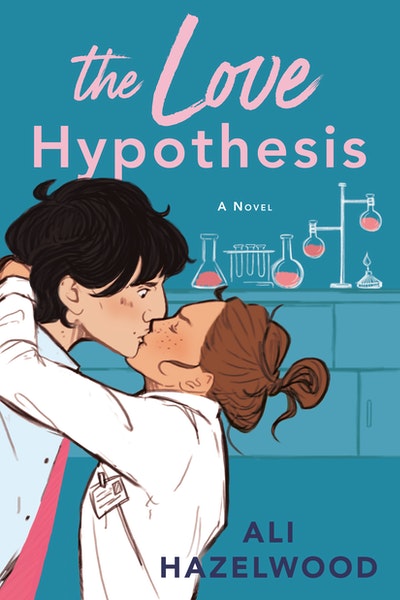On Tropes and Memes
Humans have been trained to find patterns in the world around them and simplify those patterns to make snap decisions – this is why you may flinch away at seeing a garden hose in your yard, because your brain tells you something long, thin and green is a snake! And snakes equal danger! Get away!
These judgments are a basic part of human nature, and they carry into other parts of life, as well, including how we interpret art: the way that an action or narrative is framed deeply influences how you perceive it and how you interact with it. For example, consider the following book covers and blurbs:


Considered the lowest form of literature of their respective times, these books seem to be sold on buzzwords and tropes alone. This isn't a coincidence.
In the introduction of the Beebo Brinker Omnibus, Ann Bannon talks about the covers and other promotional information about the books were produced:
Webster's defines "pulp" as "tawdry or sensational writing." In other words, sleaze. It never entered my mind that I was writing sleaze; I was writing romantic stories of women in love. But it certainly entered the heads of the editors and publishers of the original pulps, and in far from a negative sense. Their job was to promote, market, and sell the books, and sleaze had a huge appeal. Furthermore, being men – most of them, anyway – they knew that the cover tease, showing a couple of desirable women who presumably would have interesting sex in the story, would lure a male audience and probably double their profits.
She also talks about how she didn't even know what the titles of her books would be until she received the advanced copies. The blurbs on the covers would have little or nothing to do with the actual books, just promising some sort of "forbidden" or "strange" romance to try to catch potential readers' attention.
I think this is really unfortunate because, as she continues to explain, these pulps were the only way that many young lesbians from the times got to see others like themselves in media and they were repeatedly demonized and othered even then. Society respects neither the stories of the books themselves or of the audience who reads them.
I think tropes in the modern day serve the same function, where the audience seems more interested in a given trope than the individual work itself, but rather than being perpetuated by publishers and editors, the authors are adding these labels themselves (for the most part). This is made especially easy by sites like Archive of Our Own, where readers can search for fanfiction with specific tropes they like and filter out the ones they don't. Again, like how Bannon describes how she thought she was just writing love stories, this culture leads to a weird situation where you can find a story that you think it actually really well-written and relatable, but it labels itself as "trashy smut" or something like that…
This view of stories as a collection of tropes also results in authors trying to jam characters into pre-established narratives and alternative universes, where sometimes they fit and sometimes they don't. Rather than being a specific character rooted in a specific narrative, they're more like a doll floating in space who can be in any situation, dressed up in any outfits, do whatever you want them to do. This week, do you want your faves to be cowboys? Or stay at a hotel with only one bed left? Or maybe engage in some sort of werewolf sex-thing? Or a combination of all the above??
Like, I don't necessarily think tropes and the like are bad or anything (and, in fact, can be fun sometimes, don't get me wrong!), but I do think it's important to analyze how this sort of mindset affects us and how we perceive media. For example, as a result of characters not being tied to a certain narrative, it's much easier to divorce their actions from their personalities, or even aspects of their personality from them (or whatever is left of them, afterwards).
There are numerous results for "Non-Despair" alternate universes when you look at DanganRonpa fanfics on Archive of Our Own, but that's kind of the whole plot of the games? Without that, they'd just be some kids in high school? In the same vein, there are also "non-abusive" AUs of abusive pairings – but, again, this just completely removes "unsavory" aspects of characters without actually adding anything of substance. It's like cutting off the moldy parts of a block of blue cheese – not only are you trying to remove the defining feature of the thing in question, but it's a futile goal to begin with! And the end result will be completely mangled and unrecognizable!
Similarly, there's a growing trend of people writing fanfics and "scrubbing off the serial codes" to publish as original fic. Here's a Goodreads list showing 27 reskinned Reylo fics, including multiple books by Ali Hazelwood, who I used as an example earlier. If you can just erase the characters and setting so easily, then what are you left with? If you're writing so generically that your characters could just be anyone, what's the point?
This extends beyond literature, as well! Memes operate in the same way, with people co-opting any given situation into the relevant meme formats. One example of this is the long-standing trend of "incorrect quotes," like this post by Tumblr user @withlovefromolympus:
Persephone: *removes Hades from her lap to go do something else*
Hades: Wife is... evil? Wife is unyielding? Wife is incapable of love? I am running away. I am packing my little rucksack and going out to explore Olympus as a lone vagabond. I can no longer thrive in this household. [1]
This goes hand-in-hand with another issue that's grown out of all of this: people are starting to use the same words and phrases to describe things. I find myself doing the same, even, and it worries me! I have to regularly physically restrain myself from saying things like "this book is like enrichment in my enclosure!" or "oh, he's such a scrunkly, pathetic, wet dog of a man!" I'm trying to write a literary review blog to get better at expressing my own opinions in my own words, and yet I still want to just repeat what others are saying!
Obviously, everything's derivative and no one's ever had an original thought, etc, etc, but if nothing has any roots, if everything is just a floaty concept you can do whatever you want with, then nothing has any meaning at all!
One example of this that absolutely killed me is poet Sandra Simonds' "My Baudelaire Translations." I understand that this is likely meant to be some sort of avant-garde-thing, but I was genuinely trying to find translations of Baudelaire, written by a woman, and she was the only result… and it's all just such bullshit! Like, here's the header (or part of it, at least, because it goes on forever and I don't want to subject you all to that):
My Baudelaire is a single mother with student loan debt who lives in the Deep South. My Baudelaire is a woman and a man and neither a woman nor a man but this doesn’t stop her or him from performing man and woman. My Baudelaire has no gender or sex, lives in animalistic delight and animalistic agony. Time, for my Baudelaire, only makes sense in terms of bodily pleasure. […] My Baudelaire is the body of some collection of aristocratic beliefs that have been overtaken by the proletariat—their million voices have entered his body, have hijacked his voice, his throat, his eyes, his face, his skin, his being and have unleashed some deep anarchy like cracking a code.
Even this is long, but I just wanted to pick out the most relevant parts for this conversation. You see this style of writing come up so often, where people go all Walt Whitman, "I contain multitudes," and give off huge lists of all the things they allegedly are, emphasizing all sorts of contradictions and nonsensical combinations. It was perhaps cool and revolutionary the first couple of times, but now this style of list is just another cliché that people repeat and I'm sick of it!!
Just to be clear, this poem (?) is referring to Charles Baudelaire (1821 – 1867), famous French poet, who was, in fact, a singular individual man who lived his own life. He often drank to excess and gambled and visited prostitutes and apparently had some psycho-sexual obsession with his mother. Again, isn't it much more interesting to look at one individual person than whatever the hell kind of amalgamation of concepts is being described here!?
But that's just the thing: one individual person isn't a floaty concept. They'll make mistakes. They'll disagree with you. They'll do and say things you disagree with. They exist outside of you and, therefore, have a different worldview than you do. They aren't just a doll you can throw around in the sandbox of your mind, they are a complete human being living in the real world. And that's apparently a problem for many people.
Like, you see the celebrity cycles, where someone is lifted up on a pedestal, but then it's revealed that they, in fact, are a human being with flaws and, so, are thrown violently to the ground by those who claimed to love them. The newest example of this, as I'm writing this in late September of 2022, is Ned Fulmer of "Try Guys" fame, who apparently cheated on his wife. I know nothing about him or their YouTube channel. I have never heard of him before this. He's trending on Tumblr and Twitter and probably various other media outlets, with people talking about how much they hate him. I felt the need to time stamp this because, like every other piece of celebrity drama, it's going to be irrelevant in like a week and no one's going to remember or care about this incident.
Time heals all wounds. But it doesn't – you just learn to either stop caring or your attention gets drawn elsewhere.
Sorry for such a disjointed rant, but, genuinely, I think this is such a huge problem: the compartmentalization of everything. Every piece of media, every character, every plot or fragment of plot should be interchangeable. An individual should only be what you personally want them to be and should only exist skin deep, as you see them onscreen. Anything that goes against your personal wishes and preferences should be a) rewritten to suite your personal tastes, or b) destroyed. This is all completely divorced from reality!